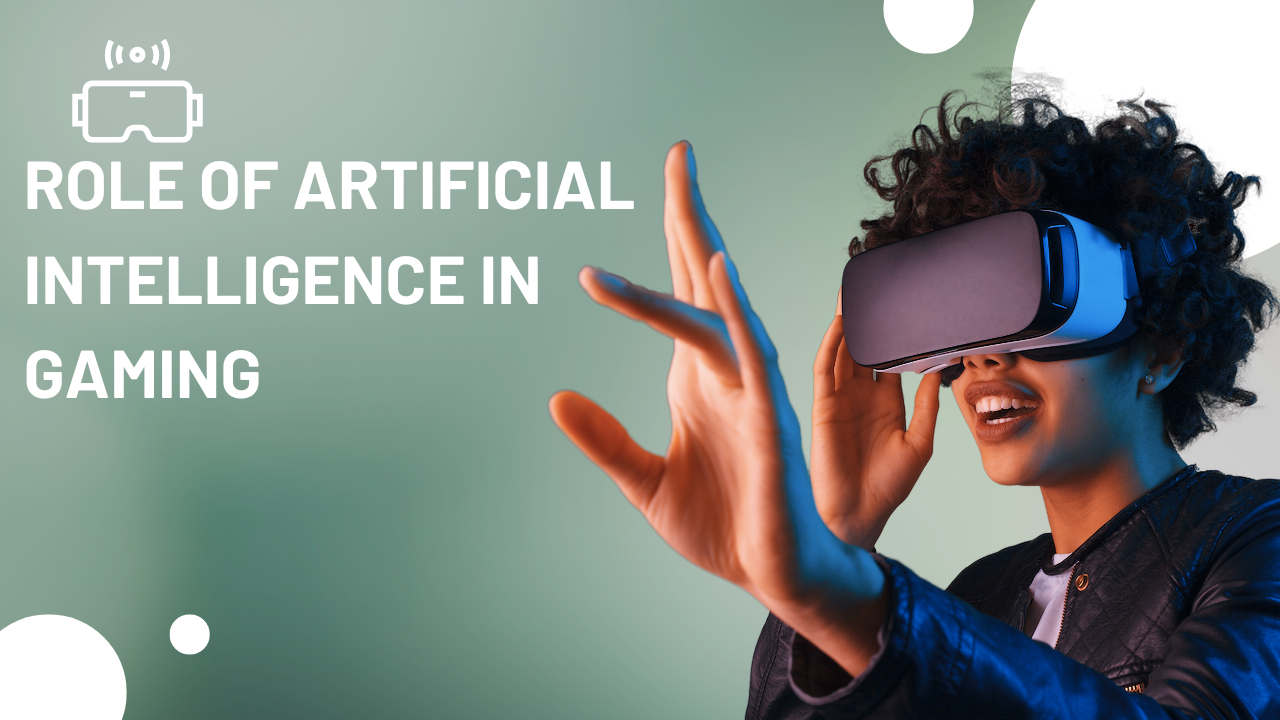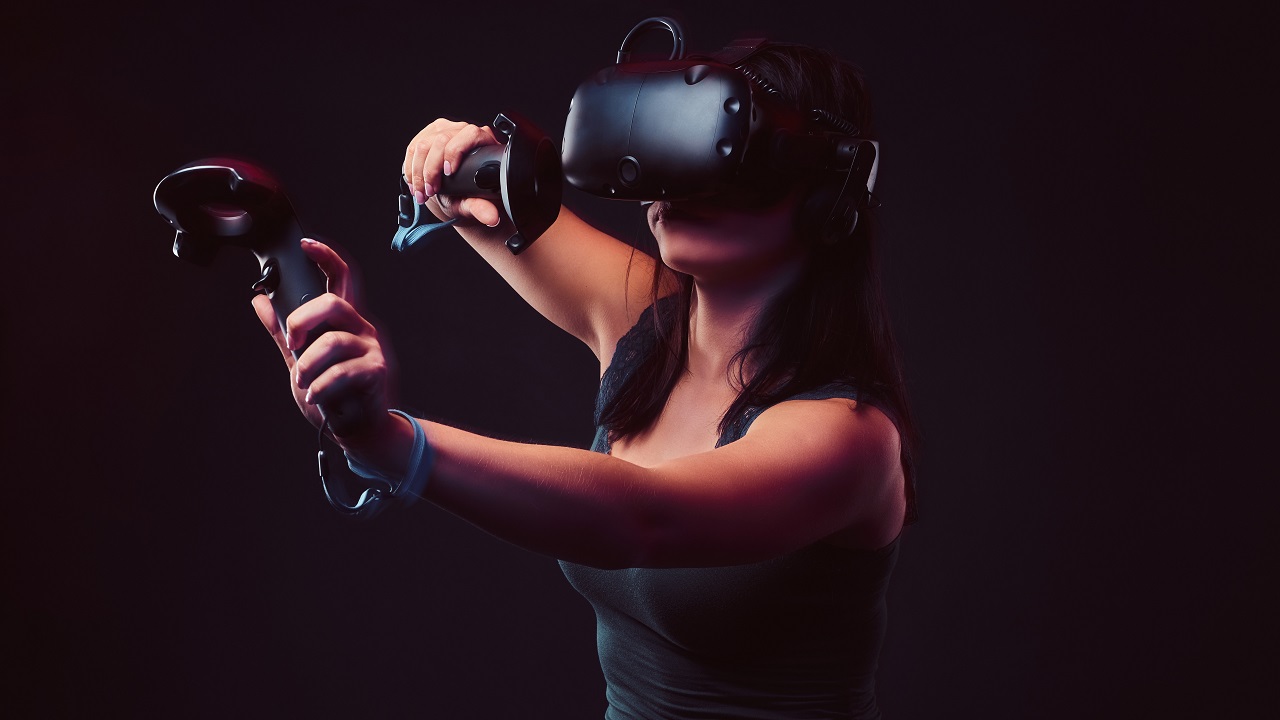
“Exploring The Role Of Artificial Intelligence In Gaming”
Racing car games, shooters, and strategy games are examples of video games that use AI or related software to power various components. In games, artificial intelligence (AI) is utilized to provide players with a realistic experience of combating each other on a virtual platform.
AI also contributes to long-term player interest and satisfaction by incorporating aspects such as enemy bots or neutral characters.
AI and game creation are both developing in different ways.
While artificial intelligence has typically been used to improve video games, computer games are currently being built to study their own patterns and enhance their algorithms. This strategy is seen as a giant step forward for AI.
The combination of virtual and virtual reality and mixed reality to build artificial settings appears to be the gaming industry’s future. The advancement of artificial intelligence is also important in the development of smarter, more interactive elements that closely mirror reality.
Artificial Intelligence in Programming and Development
AI maintains a database of information, which it uses to create a gaming environment in which characters can survive and perform basic actions.
AI collects and uses the required information to design a game environment, including the objectives, situations, and actions of the game characters, which improves the game’s natural and realistic experience.
To train AI algorithms effectively, they must be rewarded with data in order to produce the best possible responses to specific stimuli. However, accessing the vast amount of information required for training AI algorithms is difficult, which may explain why, despite its numerous benefits,
AI has not yet been adopted in every industry. Because generating and utilizing information is minimal in most games, and states/activities/rewards are relatively clear, game development is an ideal area to practice and actualize AI techniques.
Increasing the Realism of the Game
3D visualization techniques, physics-based stimuli, and virtual and augmented reality have enabled game developers to create visually attractive and intelligent games that were not previously possible.
Gamers now expect games to resemble reality rather than just be visually appealing. This presents a challenge for game developers, and artificial intelligence in gaming is effectively achieving this need. Consider a game that can identify and respond to your actions, predict your next move, and react appropriately.
How is PUB -G Able to detect Cheaters Using AI?
Cheating has been a major issue in Player Unknown’s Battlegrounds, resulting in the ban of several professional players. Despite being in beta, the game has yet to resolve the issue, with cheaters constantly finding new ways to exploit holes in the game’s anti-cheat system.
To combat cheating, the company has now implemented artificial intelligence, providing a level of security never seen before in the game. PUBG’s Anti-Cheating Team elaborated on the use of machines to identify fraudsters in the game and the various solutions they have implemented, including past reinforcements, in a recent blog post.
Whenever a player is observed engaging in odd conduct, they are added to a list and exposed to a verification procedure to establish whether they are cheating.
If they are proven guilty, PUBG Corp will either ban their account or remove their computer’s hardware footprint from the game. Additionally, PUBG Corp invites players to report any suspected cheating activities. According to the organization, determining whether a person is cheating is critical.
Making Games Smarter Than It was before
AI-based speaking technology is redefining gameplay by supporting a wide range of game types. Developments in this discipline point to the implementation of voice intelligence into console games.
The objective of game creators in the future will be to establish a strong framework within games utilizing existing AI techniques such as reinforcement learning, where characters within games would learn from their own behavior and improve accordingly. The game industry has taken note, and some have even begun to incorporate these concepts.
Developer Skills Transformation
To produce smarter and more realistic games, game makers must learn AI techniques. They have always been at the forefront of adopting cutting-edge technologies to enhance their technical abilities and creativity.
Reinforcement learning, a subset of machine learning, was used to power the famous AI PC program Alpha Go to defeat the world’s best human Go player.
Using AI, mobile games become smarter
Mobile game makers are investigating AI methods to make mobile games smarter while addressing battery constraints. Mobile games nowadays have made significant advances in visual look and intelligence when compared to games from five years ago, but they still trail behind desktop games in processing power and lack of gaming consoles. In terms of interface, content, and design, AI will transform the game business.
Improving the Overall Gameplay Experience
Players today expect high-quality visuals and dynamic gameplay, as well as attention to detail in all elements of a game. AI has the potential to significantly improve game scenarios and the overall gaming experience.
conclusion
The gaming business will be significantly impacted by artificial intelligence. As AI technology becomes more available to game creators, we may expect to see significant advancements in visuals and characters that can tell their own stories.
AI-based player profiles are already being created by developers to provide players with a unique experience, with learned response types used to make the game feel more authentic.
With the development of new AI technologies and algorithms, game makers now have an exciting chance to demonstrate their full potential.
Some FAQs :
Q: What is the role of artificial intelligence in gaming?
Artificial intelligence plays a crucial role in gaming by enhancing the gaming experience through improved gameplay, graphics, and sound. AI is used to create more realistic environments, generate realistic characters and movements, and create intelligent opponents.
Q: How does AI improve gameplay in gaming?
A: AI can improve gameplay in several ways, such as generating intelligent opponents that adapt to the player’s actions, predicting and preventing player errors, and creating more realistic and immersive environments.
AI can also help game developers optimize game mechanics and balance game difficulty.
Q: Can AI create unique gaming experiences for each player?
A: Yes, AI can be used to create personalized gaming experiences for each player by analyzing their gameplay data and preferences. This can lead to more engaging and satisfying gameplay for individual players.
Q: Are there any ethical concerns associated with the use of AI in gaming?
A: There are potential ethical concerns associated with the use of AI in gaming, such as the use of AI to manipulate player behavior or create addictive gameplay. It’s important for game developers to be transparent about the use of AI and ensure that AI is used in an ethical and responsible way.
Q: What is the future of AI in gaming?
A: The future of AI in gaming is exciting, with the potential for even more advanced AI algorithms and technologies to be developed. This could lead to even more immersive and engaging gaming experiences, as well as improved game mechanics and player interactions.
AI could also be used to create entirely new genres of gaming, such as personalized virtual reality experiences.
You Might Also Like

